By Stephen Enoch (Lead Writer)
Nigeria, Africa’s most populous nation, has an estimated population of about 200 million people, making it the seventh most populous country in the world. According to the World Population Review, the country’s population is projected to hit 400 million by 2050. The major contributors to Nigeria’s population growth are high fertility rates and limited access to Family Planning (FP) services. During the 2012 FP conference in London, national governments had committed to improving the FP situation in their countries, by ensuring women and girls everywhere were guaranteed access to modern contraceptives. This birthed the Family Planning (FP2020) initiative.
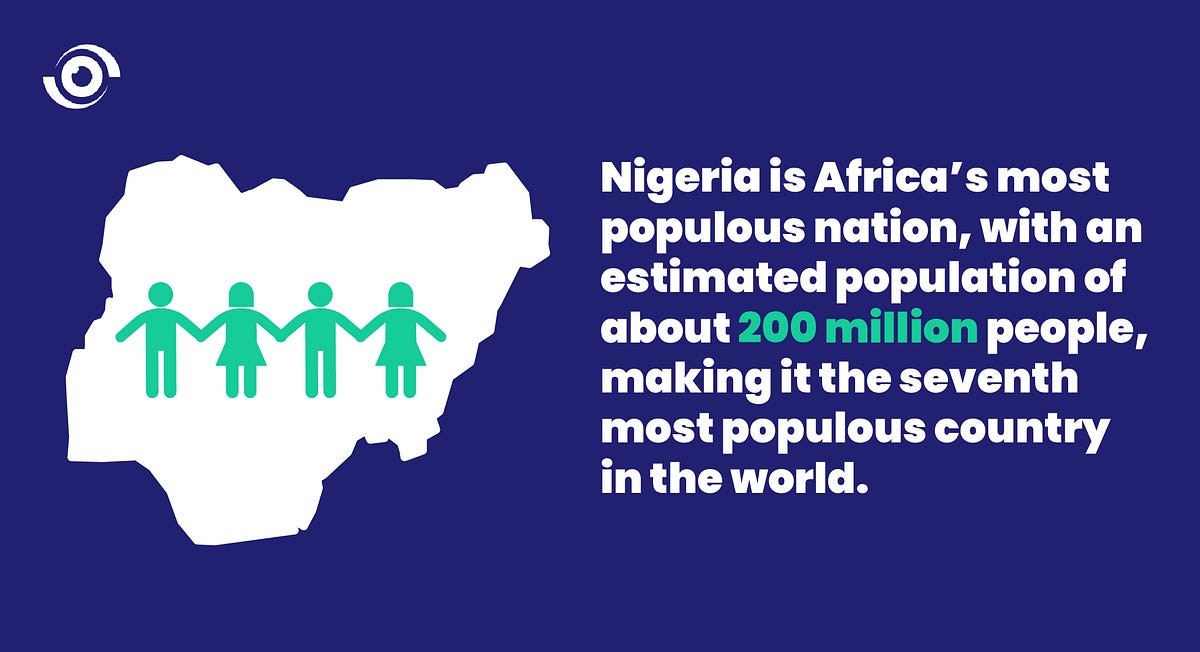
The aim of FP2020 was to support an additional 120 million people around the world with access to modern contraception by the end of 2020. Although not all FP2020 targets were met, notable gains of the initiative included a rise in contraceptive use amongst women and girls in Africa, from 40 million in 2012 to 66 million. Additionally, there was a 70% increase in the number of contraceptive users in Eastern and Southern Africa and a doubling of the number of contraceptive users in Central and Western Africa, amongst others.
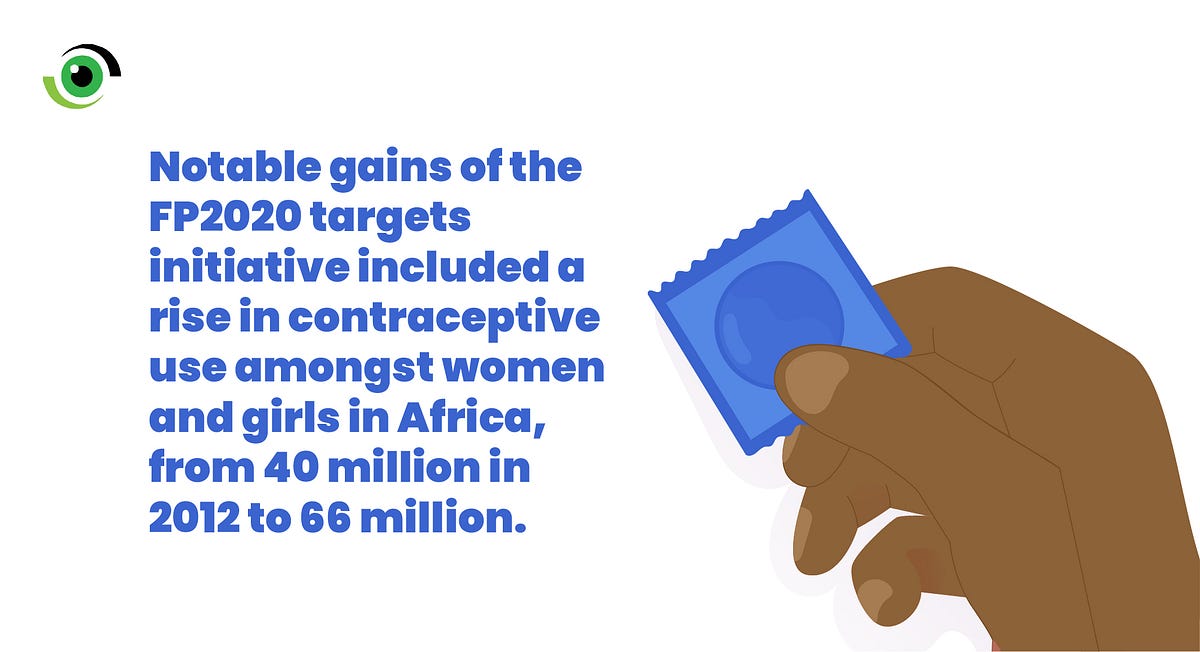
Built on the foundation of FP2020, FP2030, is geared towards ensuring women and girls everywhere live healthy lives and make informed choices on contraceptive use. It seeks to engage with and encourage men, boys and communities to form partnerships which will enable them meet their FP needs. FP2030 aims to hasten the process of addressing obstacles that delay the advancement of commitments made by governments towards FP, by strengthening result-oriented partnerships with stakeholders and experts. Consequently, the vision of FP2030 is built on consolidating on the unmet needs of FP2020.
A commitment maker to FP2020 since 2012, the Nigerian Government pledged to ensure sustainable financing for the national Family Planning program and improve the availability of FP services and commodities in the country. The government prioritises FP in both the 2014 -2020 and the 2020–2024 Family Planning Blueprints as part of an overall strategy to reduce maternal mortality and morbidity and manage the nation’s population growth rate. Civil Society Organisations (CSOs) in Nigeria are well positioned to play the crucial role of holding the government accountable to their profound commitment towards addressing the FP situation in the country.
PACFaH@Scale and FP2030
Implemented by the development Research and Projects Center (dRPC), the Partnership for Advocacy in Child and Family Health at Scale (PACFaH@Scale/PAS) project is a Bill & Melinda Gates Foundation (BMGF) funded social accountability project, focused on advocating to governments at all levels on the need to increase and sustain health funding, and also implement child and family health policies that will significantly improve the lives of citizens. PAS aims to strengthen the capacity of Civil Society Organisations (CSO) at national and state level to design and implement evidence-based health advocacy.
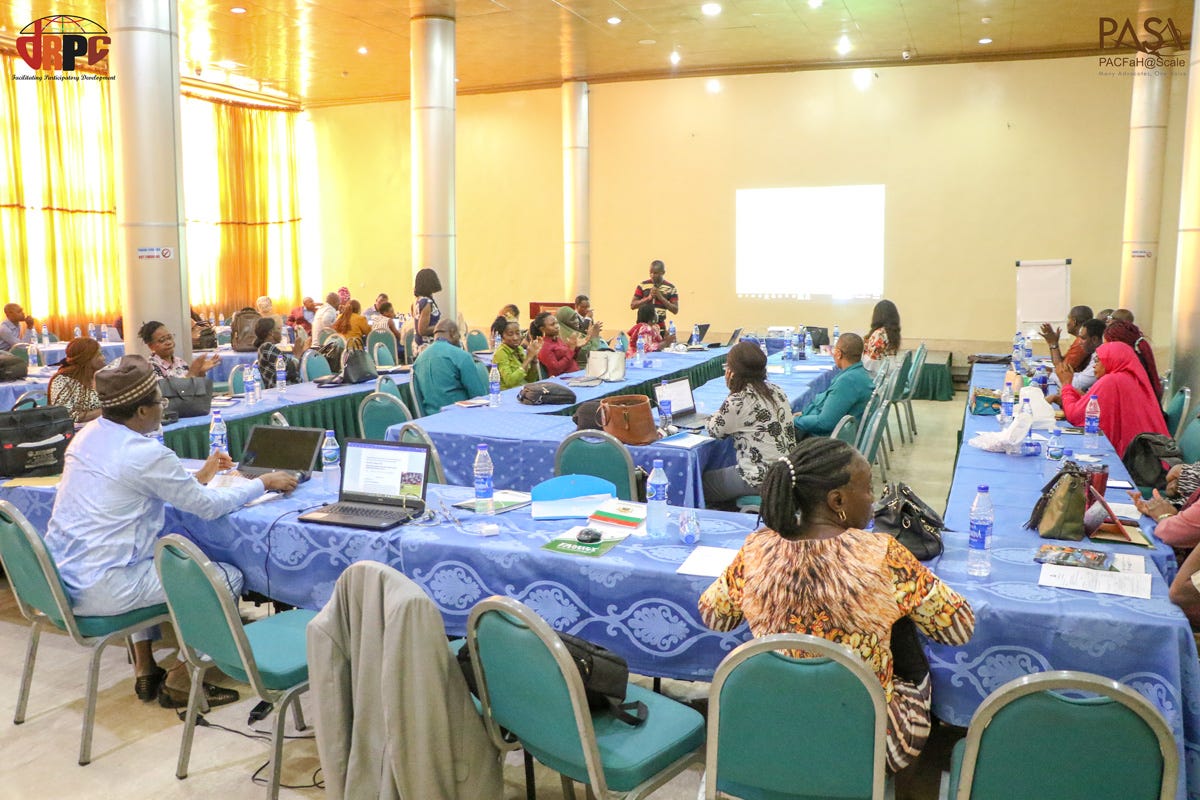
Since 2017 PAS has strengthened the capacity of several health professional associations, Faith Based Organisations (FBOs) and other CSOs to conduct evidence informed advocacy with messages of adequate allocations and timely releases of FP funding. The Society of Gynecology and Obstetrics of Nigeria (SOGON) has been a leading PAS FP advocacy organisation holding government, at national level, accountable to the commitments made on FP. Notably, SOGON has successfully led advocacy efforts to the Federal Ministries of Finance and Health on the prompt release and utilisation of FP funds and provided technical support to mainstream an accountability mechanism into the 2020–2024 FP Blueprint. PAS is currently supporting nine other CSOs and professional groups working in Kano, Kaduna, Niger and Lagos, PAS focal States, to prioritise FP. They are advocating for FP service delivery to be integrated into primary health services, for adequate provisions for FP funding in annual budgets and the release of allocated funds in a timely manner. Fostering accountability and CSO participation are central to the work of the PAS CSOs at national and state levels.
“There is also a mandate to ensure funds budgeted and released for family planning are utilised for the purpose they are intended; and this is where CSOs play an important role, which is advocating for timely release and judicious utilisation of the funds, in accordance with what they have been budgeted for”, said Dr Habib Sadauki, president, SOGON.
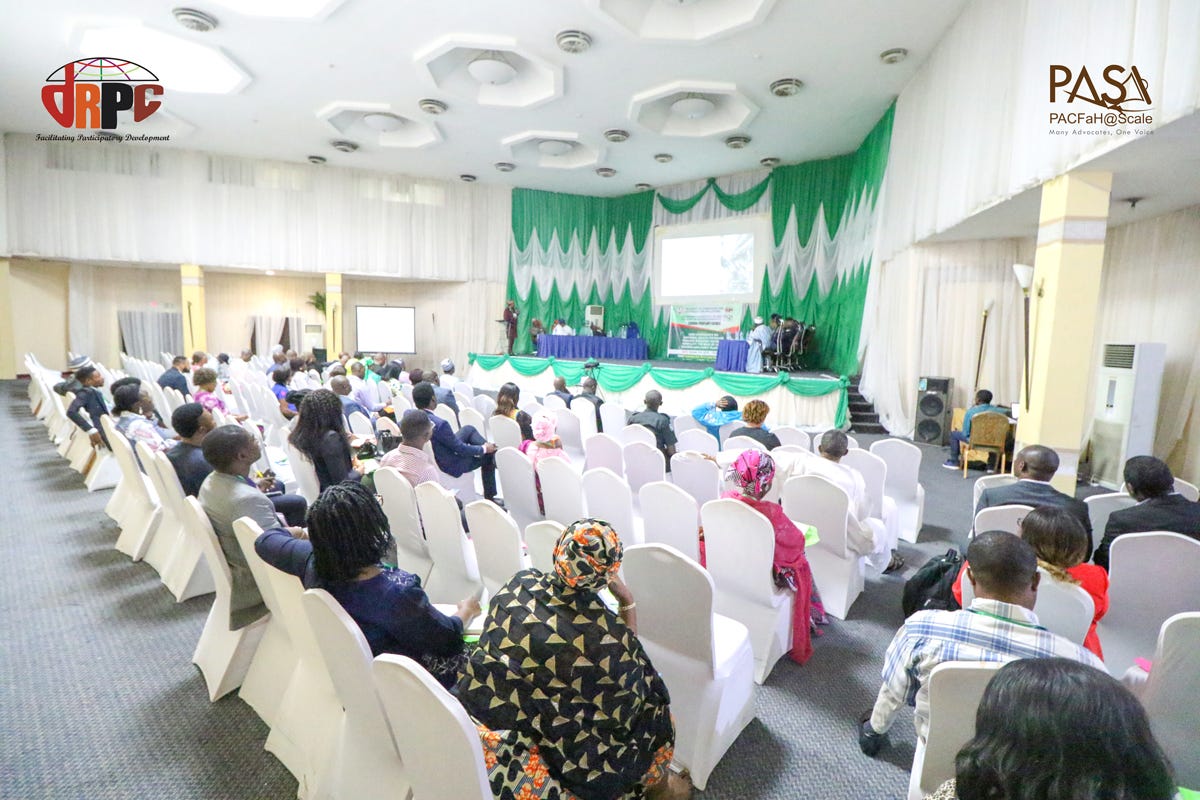
CSOs as accountability platforms for FP2030 targets
Enhancing access to FP services remains the centerpiece of efforts to ease Nigeria’s demographic crisis. Through support from dRPC-PAS, the Association for the Advancement of Family Planning (AAFP) has also been working with various partners towards enhanced FP policymaking in Nigeria ahead of 2030. Reducing Nigeria’s current fertility rate of 5.39% requires a strategic investment in FP by governments at all levels which will allow the country the opportunity to successfully attain the major objectives of FP2030.
“Thanks to a partnership between government and CSOs aimed at holding the government accountable for its commitments regarding funding and last-mile distribution of FP commodities, the targeted 36% modern contraceptive prevalence rate (mCPR) which wasn’t actualised during FP2020 could be realised moving forward,” said Dr Ejike Orji, Chairman, Technical Management Committee, AAFP.
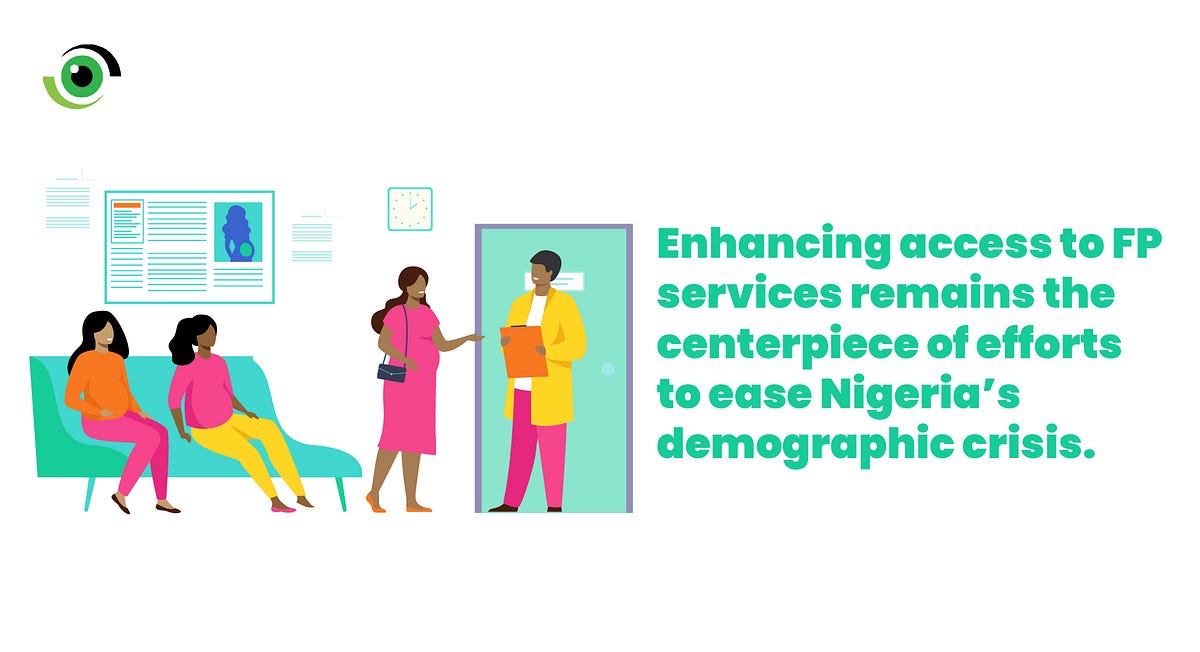
The road to FP2030
As Nigeria advances towards reaching the targets of FP2030, CSOs should continue to keep governments on track, to ensure that the set FP commitments are reasonable and achievable. On their part, governments, at all levels must implement all strategies and policies beneficial to the successful realisation of Nigeria’s FP2030 targets.
“As the citizen’s voice, CSOs will continue to amplify the voice of the people at both national and international level, if the government fails to commit to the goals of FP2030,” said Dr Sada Danmusa of the Technical Support Unit (TSU) project, focused on strengthening FP capacity at state-levels.
FP2030 is built on the premise of reaching individuals with rights-based FP methods and CSOs in Nigeria are holding the government accountable for FP2030 using a multi-layered accountability mechanism. That the federal and many state governments have consented to the Open Government Partnership (OGP) means they should be more open to sharing information regarding their budgeting process. Consequently, this offers CSOs the opportunity to actively engage with the budgeting processes, advocate for the prioritisation of funding for FP at various levels and monitor the process until the FP commitments are successfully implemented.
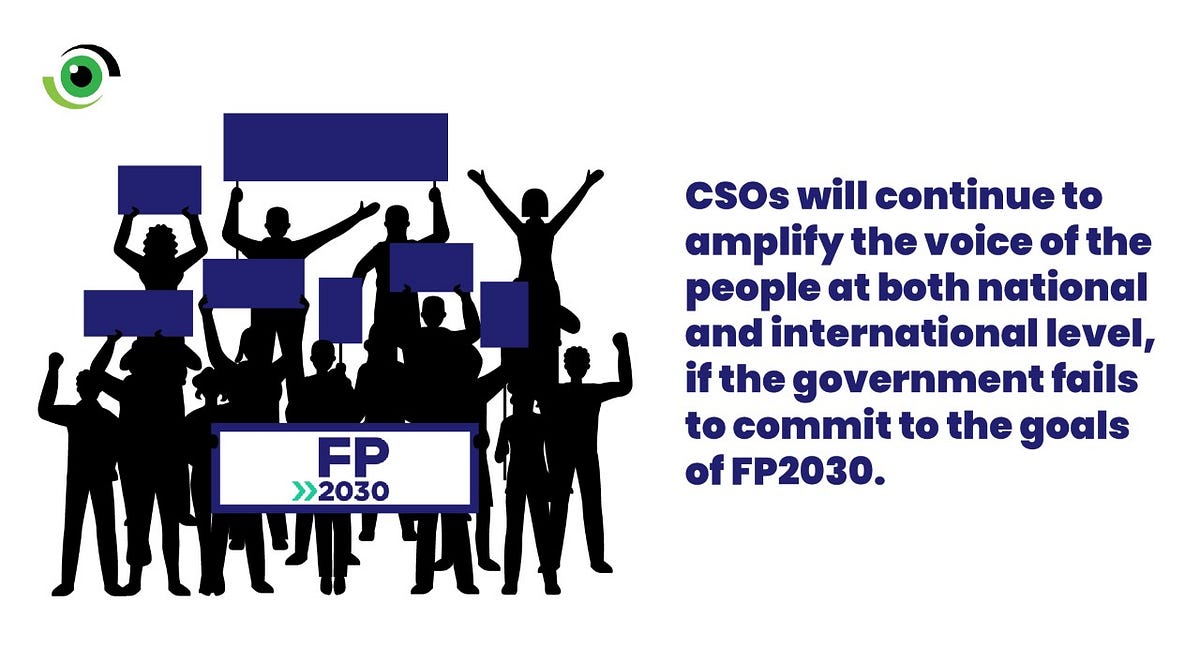
Towards this objective, Nigerian Family Planning stakeholders recently convened in Kano at the Second Stakeholders’ Meeting for the Development of Nigeria’s FP2030 Partnership Recommitment. The high-level stakeholders’ meeting convened by the Federal Ministry of Health, (FMoH) saw major FP stakeholders including CSOs in the country deliberating on strategies for ensuring the recommitment of the Nigerian government towards FP2030.
Dr Stanley Ukpai, the Director of Programmes at dRPC commends the government for opening up the meeting to CSO participation which he said, “Allows for the inclusion of CSOs in the recommitment process which is key to positioning the CSOs as strategic partners to achieving targets of FP2030”.
The #FundFPNaija Policy Dialogue
Funding for procurement of family planning commodities is usually done through a basket fund at the national level, with the federal government and development partners contributing. However, this is inadequate to cover the unmet need for family planning services in Nigeria. The Nigeria Family Planning Blueprint 2020–2024 outlines the country’s strategic objective to improve domestic funding to adequately cover family planning costs countrywide through mobilisation of resources from new public and private sector funding sources. To highlight ways this plan can be achieved, Nigeria Health Watch, another CSO advocating for increased access to FP services and commodities in the country hosted a Family Planning Policy Dialogue with the theme: #FundFPNaija.
Key family planning stakeholders came together to discuss ways to increase domestic resource mobilisation for family planning services in Nigeria. Some vital recommendations proffered to ensure that Nigeria improves her domestic resource mobilisation for family planning services include,
- Increase revenue generation and allocation of funding to health through earmarked taxes and efficient management of resources.
- Work with states to identify their priorities and ensure advocacy for family planning services fit into them to increase resource mobilisation at the state level.
- Increase private sector involvement in funding for family planning services by making a sound business case on prospective benefits, such as reduction in taxes, and reduced maternal mortality.
- Empower youth with the right information to increase demand, uptake and access to family planning services.
- Increase men’s involvement in advocacy for increased access to family planning services.
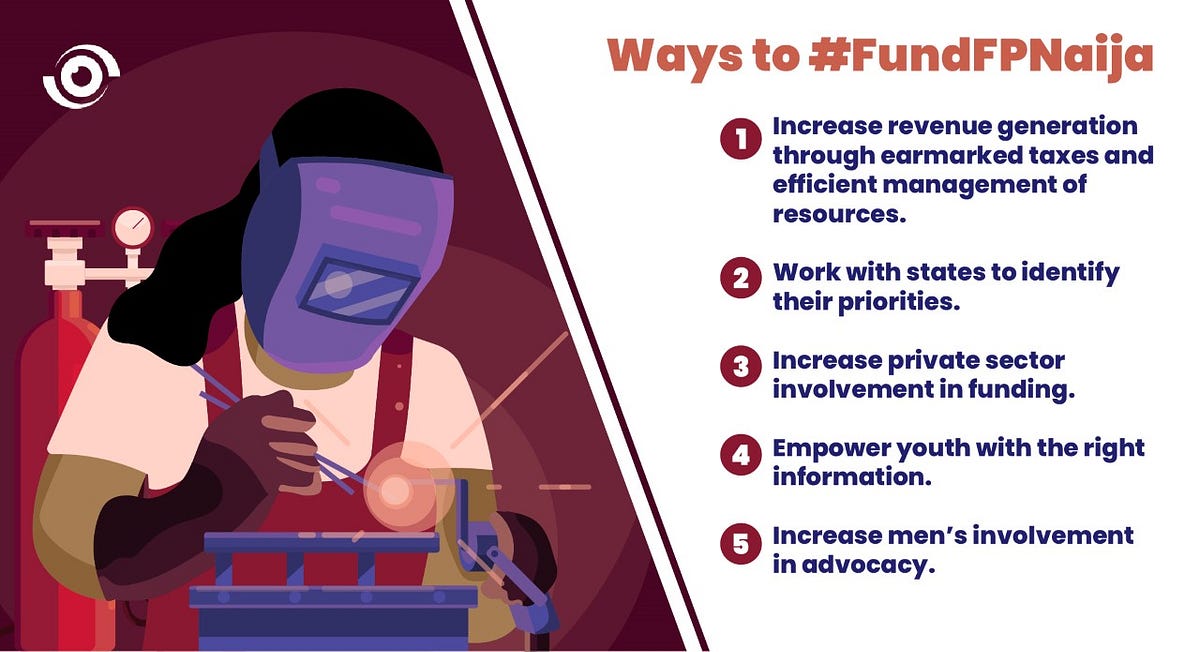
CSOs are fully invested in ensuring that Nigeria’s FP2030 targets are exceeded. If governments at all levels faithfully commit to the objectives of FP2030, working in tandem with CSOs, Nigeria’s unmet FP2020 targets will be successfully actualised and the country will be well on its way to realise its FP2030 targets.


